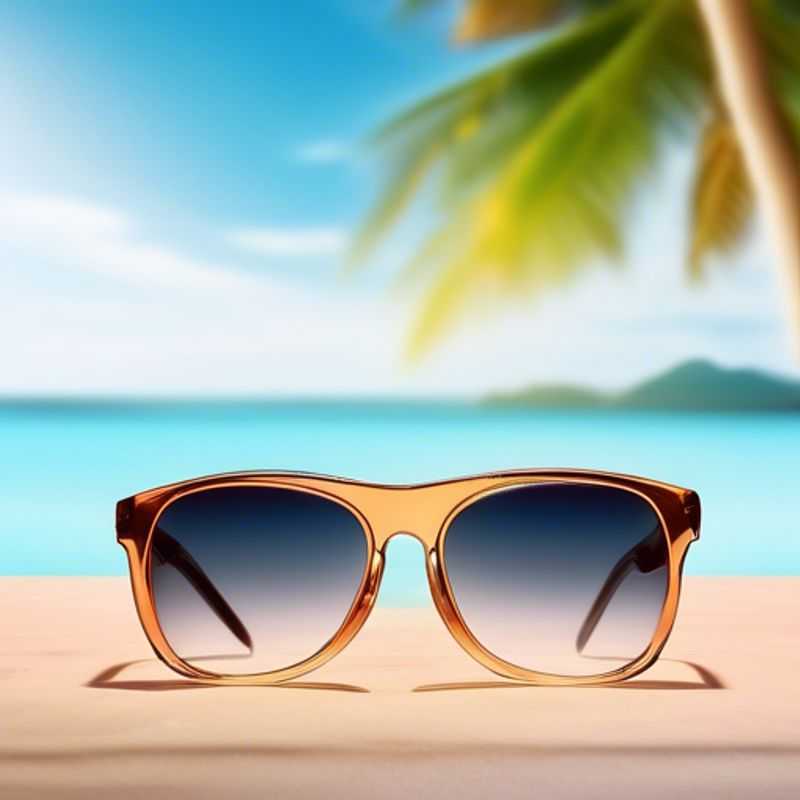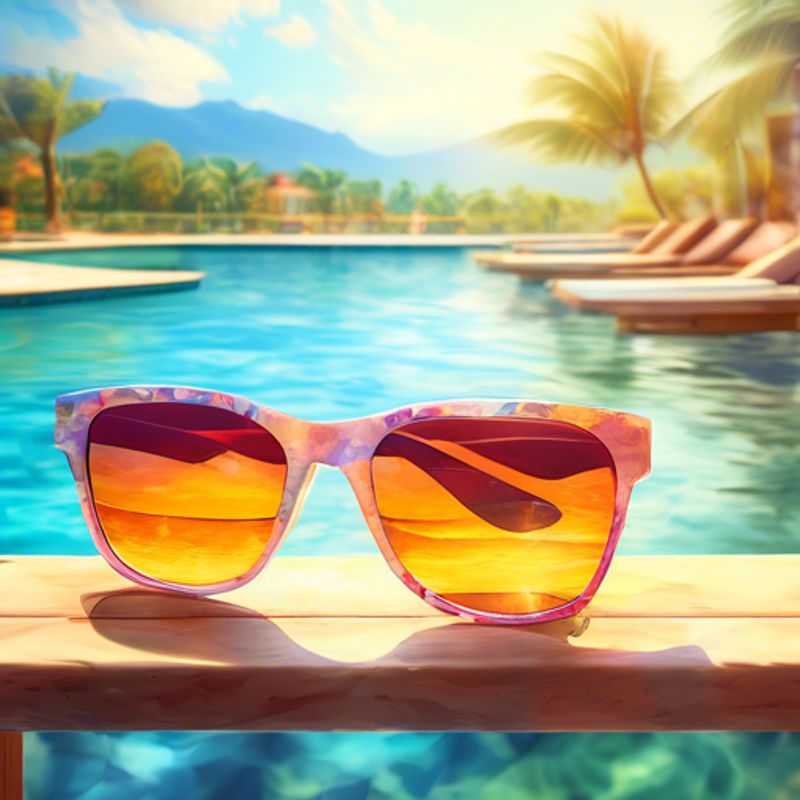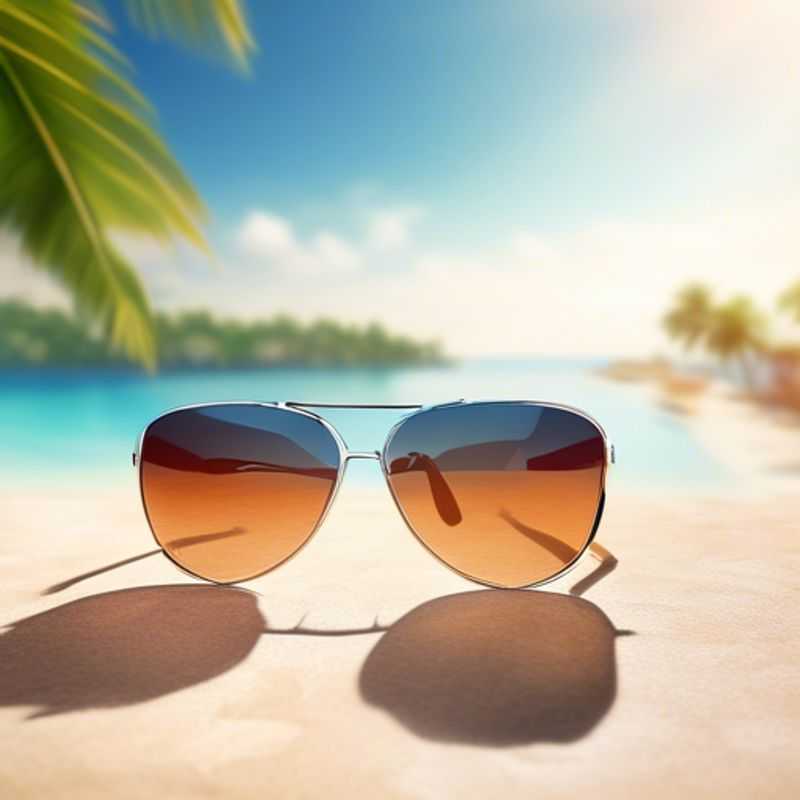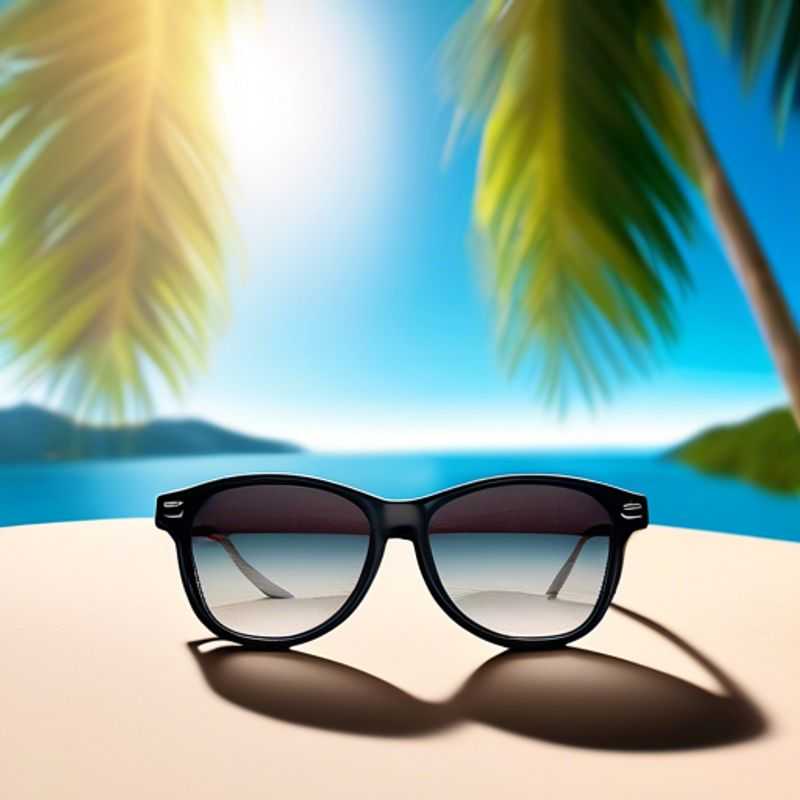5 Tips to Know Before Purchasing Sunglasses: A Sun-Savvy Guide

Sunglasses Shopping: 5 Tips to Avoid a Blind Buy (and a Headache)
Alright, fellow sun seekers, it's time to ditch the blurry vision and embrace the dazzling world of sunglasses! Before you dive headfirst into the world of tinted lenses and stylish frames, let me guide you through a few essentials. Think of this as your ultimate survival guide to finding the perfect pair of shades, a journey that involves deciphering the mysteries of lens technology, navigating the treacherous waters of frame fit, and even uncovering the hidden secrets of brand reputation. Buckle up, because we're about to embark on a quest for the ultimate sunglass experience!
First up, let's demystify those mysterious lens types.
Before purchasing Sunglasses
- Understand the different lens types and their benefits. Polarized lenses, for instance, reduce glare from reflective surfaces like water and snow, improving clarity and reducing eye strain. UV protection is a must-have for safeguarding your eyes from harmful rays.
- Consider the frame size and shape to ensure a proper fit for your face.

Decoding the Lens Labyrinth: Unveiling the Secrets of Polarized, UV Protection, and More
Sunglasses aren't just a fashion statement, they're crucial for eye health and comfort! Choosing the right lens type depends on your needs and activities.
Polarized lenses are a must-have for outdoor activities like fishing or driving. They eliminate glare from reflective surfaces like water and snow, reducing eye strain and improving clarity.
UV protection is vital for everyday use. Ultraviolet (UV) rays can damage your eyes, increasing the risk of cataracts and other conditions. Choose lenses that offer 100% UV protection.
Mirrored lenses, often seen in sporty sunglasses, reflect sunlight, making them ideal for bright conditions. But be warned, they can make it hard to see in dim light.
Photochromic lenses are the ultimate chameleon! They darken automatically in sunlight, providing extra protection without having to switch lenses.
Beyond these basic types, specialized lenses exist for specific activities like sports or skiing. Always consult an eye care professional for personalized advice on the best lens type for your needs.

Frame Size and Shape: Finding Your Perfect Fit
Choosing the right glasses frame size and shape is crucial for comfort, aesthetics, and functionality. It's a bit like finding the perfect shoe - if it doesn't fit, it's going to be a pain in the...well, you know. But don't worry, with a few simple steps, you can find the perfect fit.
First, let's talk size. Measure your face, and use that information to select a frame that complements your features, not overpowers them. Think of it like a magic potion - you want the frame to blend in, not stand out like a sore thumb. Remember, there's no one-size-fits-all solution.
Now, let's tackle the shape. Round faces work well with angular frames, while oval faces can rock almost any shape. Square faces can soften their edges with rounded frames, while heart-shaped faces can accentuate their cheekbones with cat-eye styles.
Don't be afraid to experiment! Try on different shapes and sizes, and ask for help from an optician. They're like the wizards of the eyewear world, and they can guide you to find the perfect fit for your face and your style.

Beyond the Lens: Unmasking the Quality of Your Sunglasses
Sunglasses are more than just a fashion statement; they're essential for protecting your eyes from harmful UV rays. But with so many options out there, how do you know you're getting quality construction and materials?
Start with the frame. Look for sturdy materials like metal, titanium, or high-quality plastic. Avoid flimsy frames that might bend easily, and check for smooth, well-finished edges to prevent discomfort.
Next, examine the lenses. They should be made of impact-resistant materials like polycarbonate or glass. Look for lenses with UV400 protection, which blocks 99-100% of harmful UVA and UVB rays. A good test for quality is to hold the sunglasses up to a light source. The lenses should appear uniformly colored with no distortion or bubbles.
Don't forget the hinges. They should be strong and secure, capable of withstanding repeated opening and closing. Look for hinges that use screw-on construction for a more durable option.
Finally, check the overall finish. A high-quality pair of sunglasses will have a smooth, even finish with no sharp edges or rough spots. Look for a warranty or guarantee, as this indicates the manufacturer stands behind their product.
By taking the time to inspect these key features, you'll be sure to choose a pair of sunglasses that will protect your eyes and last for years to come. Remember, investing in quality sunglasses is an investment in your eye health.

Don't Get Burned: Research Brand Reputation and Reviews Before You Buy
Before you plunk down your hard-earned cash, it's crucial to investigate the brand's reputation and read what others have to say about their products. Think of it as a treasure hunt – you want to make sure you're not getting swindled with a fake gem!
Websites like Trustpilot, Google Reviews, and even social media platforms can provide valuable insights into a brand's reliability. You'll find user reviews detailing their experiences, both good and bad. Look for patterns – if a brand consistently gets glowing reviews, you're likely in good hands. However, if you see an abundance of negative feedback, it's a red flag. Proceed with caution, or even better, explore other options.
Remember, it's not just about the number of stars; pay attention to the content of the reviews. Look for specific details about the product's quality, customer service, and delivery experience. You can also check if the brand responds to negative reviews, as this shows they're genuinely interested in customer satisfaction.
Don't forget to consider independent reviews from industry experts or publications. These often offer a more in-depth analysis, providing you with a balanced perspective. After all, you want to be sure you're making an informed purchase, not just going by hype.

Budgeting for Bargains: How to Get the Best Value with Sales and Discounts
When looking for the best value for your purchases, a key strategy is to determine your budget before you even start browsing. This prevents impulse buys and keeps you focused on your goals.
Once you know your budget, look for sales and discounts. Many retailers offer regular promotions, particularly during peak shopping seasons like Black Friday or Cyber Monday.
Consider subscribing to newsletters or following your favorite brands on social media. Many businesses announce exclusive deals and promotions to their subscribers first.
Don’t forget to factor in shipping costs when comparing prices, as these can significantly impact your final cost. Compare shipping options and look for free shipping deals.
Always compare prices from different retailers. You can use online price comparison tools or check out multiple websites to find the best deals.
Don’t hesitate to negotiate with the seller, especially if you’re making a large purchase. This can be a good way to get a better price, particularly if you’re buying from an independent vendor or a smaller store.
Remember that sometimes paying a little more for a high-quality product can save you money in the long run. This is especially true for durable goods like appliances or electronics.
Be sure to factor in the cost of ownership, which includes things like maintenance, repairs, and replacement parts.
By following these tips, you can get the best value for your purchases and save money while still getting the products you need.
